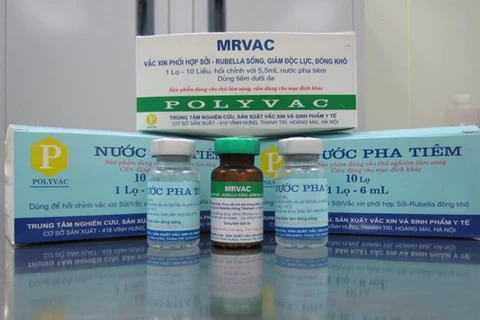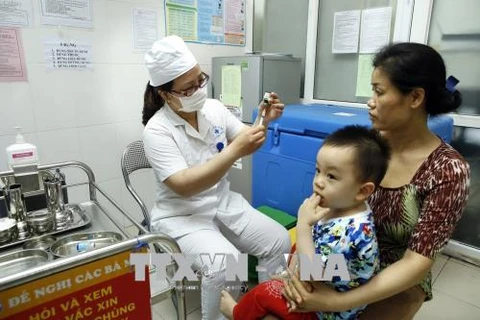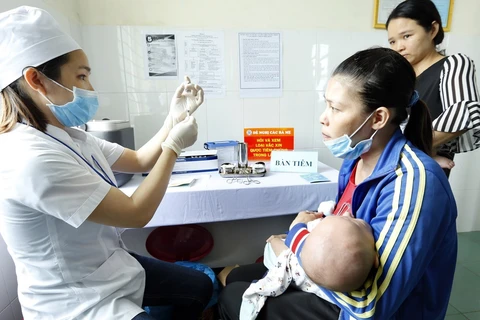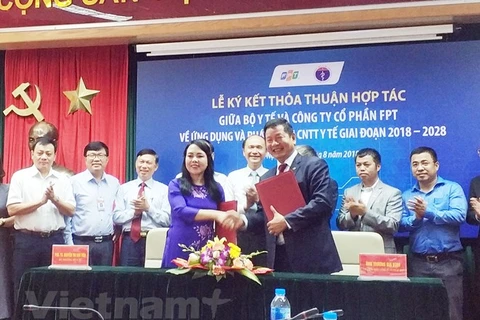Hanoi (VNA) - The health sector aims to have over 95 percent of under-one-year-old children nationwide fully vaccinated in the expanded national immunization programme by 2020, heard a conference in Hanoi on January 7.
Speaking at the event, Director of the National Institute of Hygiene and Epidemiology (NIHE) Dang Duc Anh said the programme will continue to support disadvantaged localities to increase their vaccination rate through improving the capacity of medical staff, and making it easier for the people to access the expanded immunisation service.
In 2019, the NIHE will promote communication campaigns to raise public awareness of the benefits of full vaccination, and additional vaccination shots so that people can actively take their children to fully vaccinate on schedule.
It will also focus on popularise knowledge about monitoring and taking care of children after vaccination in the community, Anh said.
The conference heard that 2018 was the 18th year that Vietnam had successfully protected its goal to eliminate polio, and the 13th year the country had maintained the achievement of removing neonatal tetanus nationwide.
Measles outbreaks were controlled, while the number of rubella was low in the year.
The institute has successfully implemented a new vaccine called inactivated polio vaccine (IPV) into the programme under the support of the Global Alliance for Vaccines and Immunisation (GAVI). Since September 2018, the IPV has been used at all health stations of communes and wards. Around 297,390 children across the country have been given this vaccine.
It has also successfully used measles-rubella vaccine produced by Vietnam, instead imported ones for 18-month-old children from April 2018, and provided the 5-in-1 ComBe Five vaccine for under-one-year-old children across the country from December 2018.
The vaccination of hepatitis B for newborns within 24 hours in many localities has been promoted with more active participation of hospitals. The model has been also expanded to some mountainous and remote areas, contributing to maintaining the rate of hepatitis B vaccination for newborn babies at over 70 percent in the first 11 months of 2018.
Attention was also paid to activities of vaccination against measles-rubella and diphtheria, pertussis, and tetanus for 18-month-old children, and tetanus vaccination for pregnant women.
The national immunisation information management system has been deployed nationwide since June 2017. So far, 11,183 (or 99 percent) of medical stations across the country applied the system to manage individual immunisation status. In 2018, more than 1.7 million children were registered on the system to store personal vaccination information, facilitating the management of vaccination at the local level.-VNA
VNA

























